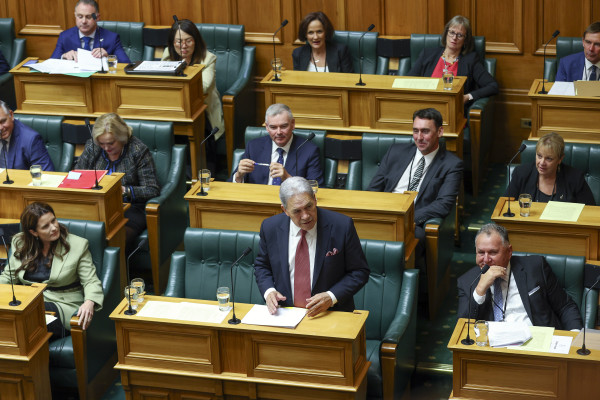From January 1, 2025, all core law courses will have a compulsory tikanga Māori component.
This week, King’s Counsel Gary Judd filed a complaint over tikanga Māori becoming a requirement for law students. And in a NZ First media statement, party leader Winston Peters said: “Tikanga is not law. It is cultural indoctrination.”
Re: News spoke to lawyer and director at Whāia Legal, Tai Ahu (Waikato-Tainui, Ngāti Kahu (Te Paatu) about having tikanga Māori in law courses.
Tai Ahu. Photo: supplied.
Is tikanga Māori already compulsory when learning law?
It's not currently compulsory, but from January 1, 2025, the core law courses in our law schools will need to have a component of te ao Māori and tikanga Māori built into them.
In addition to that, there will be a separate compulsory tikanga Māori course that law students will need to complete in order to fulfil the requirements of the degree.
In the past, how have lecturers decided whether to teach it or not?
It's been pretty ad hoc in the past, different law schools go into different details of tikanga and focus on different aspects of tikanga.
In my experience, it tended to be dependent upon the lecturer and the way the courses are kind of compiled and taught.
Most law courses, if not all of them today, have a Māori customary law course. I'm sure all of them have a Māori land law course.
So you've got examples of law courses where it's taught already that provide a platform to grow the recognition of tikanga Māori in law schools across the different law courses.
Why do you think it's important?
As law evolves, it's important law reflects the society it governs.
It's now clear in numerous decisions of the Court of Appeal and the Supreme Court that tikanga Māori is part of our law, and that is right because a significant population of Aotearoa respects and reflects Māori values.
There's also the Treaty of Waitangi that acknowledges tikanga Māori as being a taonga or something that was to be protected and for which Māori exercise tino rangatiratanga over.
The law has to evolve and change to reflect the values of the society that it's in. We can't simply apply an outdated law if it doesn't reflect our society.
The NZ First leader has said "tikanga is not law, it's cultural indoctrination". Do you think it is law?
Yes, I do.
I think tikanga is law because law is a system that enables a society to organise itself and to have a clear framework for governing behaviour and governing decisions of individuals in that system.
I think tikanga Māori meets the requirements of law and in our legal history, this is not new.
It’s been pretty clear from even some very early cases that tikanga Māori has been respected as its own legal system, even when English law was first applied in New Zealand.
More recently, we have tikanga Māori being applied in cases where tikanga is considered to be relevant.

NZ First leader Winston Peters. Photo: Getty Images.
Have you taught tikanga to your students? What does it include?
Yes. It includes understanding principles like manaakitanga, kaitiakitanga and aroha.
Those principles are like regulators - we can think of them as principles that you can apply to fact situations that lead to a certain consistent outcome.
Have you had feedback from students regarding learning tikanga? What are they saying about it?
There was a survey released last year that said 85% of law students thought that tikanga Māori was an important aspect to their legal education.
This isn't something that's been driven by a small number of loud voices.
This is something that our students are recognising as important to them.
I've taught Māori custom law for some time over the years, not always consecutively, but the level of uptake is hugely significant and it's not compulsory at the moment.
Last year I had 90 students in my class, this year I think there are 80.
When I was doing Māori custom law [as a student], the class was probably lucky to have 20 students.
There's an appetite there that I don't think reflects what Winston Peters and Garry Judd KC are saying about it.